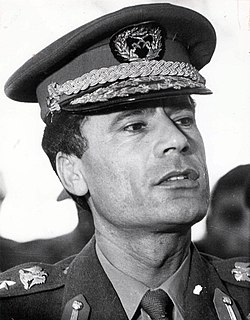A Quote by Jodie Turner-Smith
So I was really excited when I came to America about meeting black people. But it was a huge culture shock, because I was rejected by the black community. They were like, 'You talk like a white girl.' People would call me an Oreo. All I wanted was acceptance.
Related Quotes
The strange thing about my life is that I came to America at about the time when racial attitudes were changing. This was a big help to me. Also, the people who were most cruel to me when I first came to America were black Americans. They made absolute fun of the way I talked, the way I dressed. I couldn't dance. The people who were most kind and loving to me were white people. So what can one make of that? Perhaps it was a coincidence that all the people who found me strange were black and all the people who didn't were white.
They used to call me Firefly when I was a little girl, and I always tried to figure out why I was being called a firefly. I was really black, black, black from the sun. After being in Jamaica for 13 years, my eyes were really beady and white, and my skin was really black. I must have really looked like a fly. My eyes looked like lights, like stars.
I did not disregard my culture, if I did, it was the white American culture, and I accepted my true culture, when I accepted Mohammed Ali, because this is a black name, Islam is the black man's religion, and so I would like to say, that I would like to clarify that point that I reclaimed my real culture, and that's being a black man and wearing a black name with a black body, and not a white name, so I would never say that I didn't disown my culture.
The biggest surprise for me, without a doubt, was that the first black people who came to the United States weren't the 20 who arrived in Jamestown in 1619. All of us had been taught that. Well, guess what? The first African came to Florida in 1513. And the huge shock is we know his name, Juan Garrido, and that he wasn't a slave. He was free! This brother was a conquistador who came with Ponce de Leon. He was looking for the Fountain of Youth just like the white people were.
I would say I'm black because my parents said I'm black. I'm black because my mother's black. I'm black because I grew up in a family of all black people. I knew I was black because I grew up in an all-white neighborhood. And my parents, as part of their protective mechanisms that they were going to give to us, made it very clear what we were.
I've never seen a sincere white man, not when it comes to helping black people. Usually things like this are done by white people to benefit themselves. The white man's primary interest is not to elevate the thinking of black people, or to waken black people, or white people either. The white man is interested in the black man only to the extent that the black man is of use to him. The white man's interest is to make money, to exploit.
Certainly I feel like I'm the tip of the arrow at times because certainly the national media wants to talk about the fact that I'm a black Republican and some people think of that as zany that a black person would be a conservative but to me what is zany is any person black, white, red, brown or yellow not being a conservative.
Black people's music is in a class by itself and always has been. There's nothing like it. The reason for that is because it was not tampered with by white people. It was not on the media. It was not anywhere except where black people were. And it is one of the art forms in which black people decided what is good in it. Nobody told them. What surfaced and what floated to the top, were the giants and the best.
I love everything black, because black is cool. When something crosses over, people are like, "Oh, this is a crossover." First of all, there is no urban anymore. Pop culture is black. White kids are dressing like black kids. It's all crossed the lines now. The way I understand it is, everything black is cool. When it crosses over to white, that means it's going from cool to uncool. That's what crossover is.
You can't have anything valuable in your house. Niggers will break in and take it all! Everything white people don't like about black people, black people don't like about black people. It's like our own personal civil war. On one side, there's black people. On the other, you've got niggers. The niggers have got to go. I love black people, but I hate niggers. I am tired of niggers. Tired, tired, tired.








































